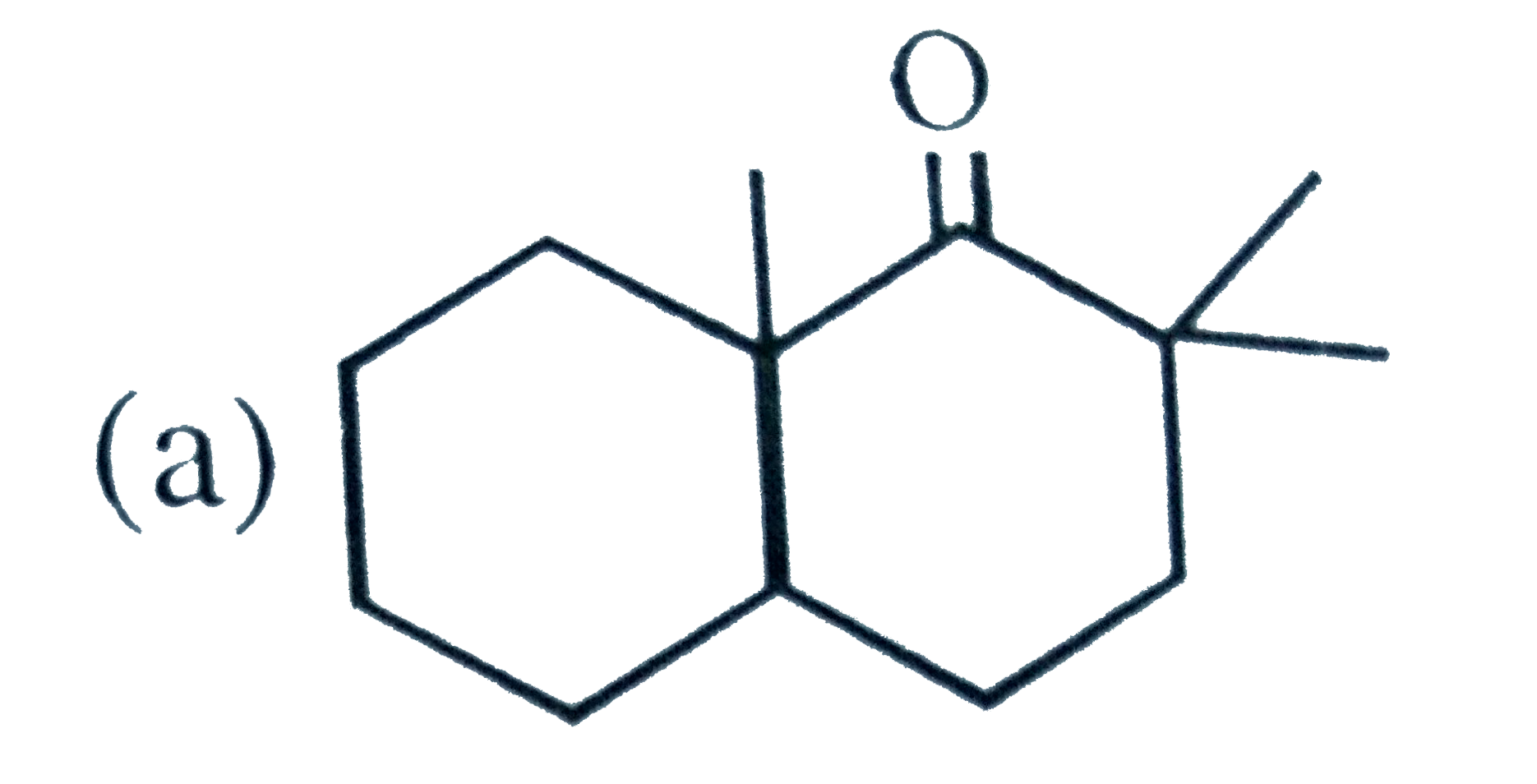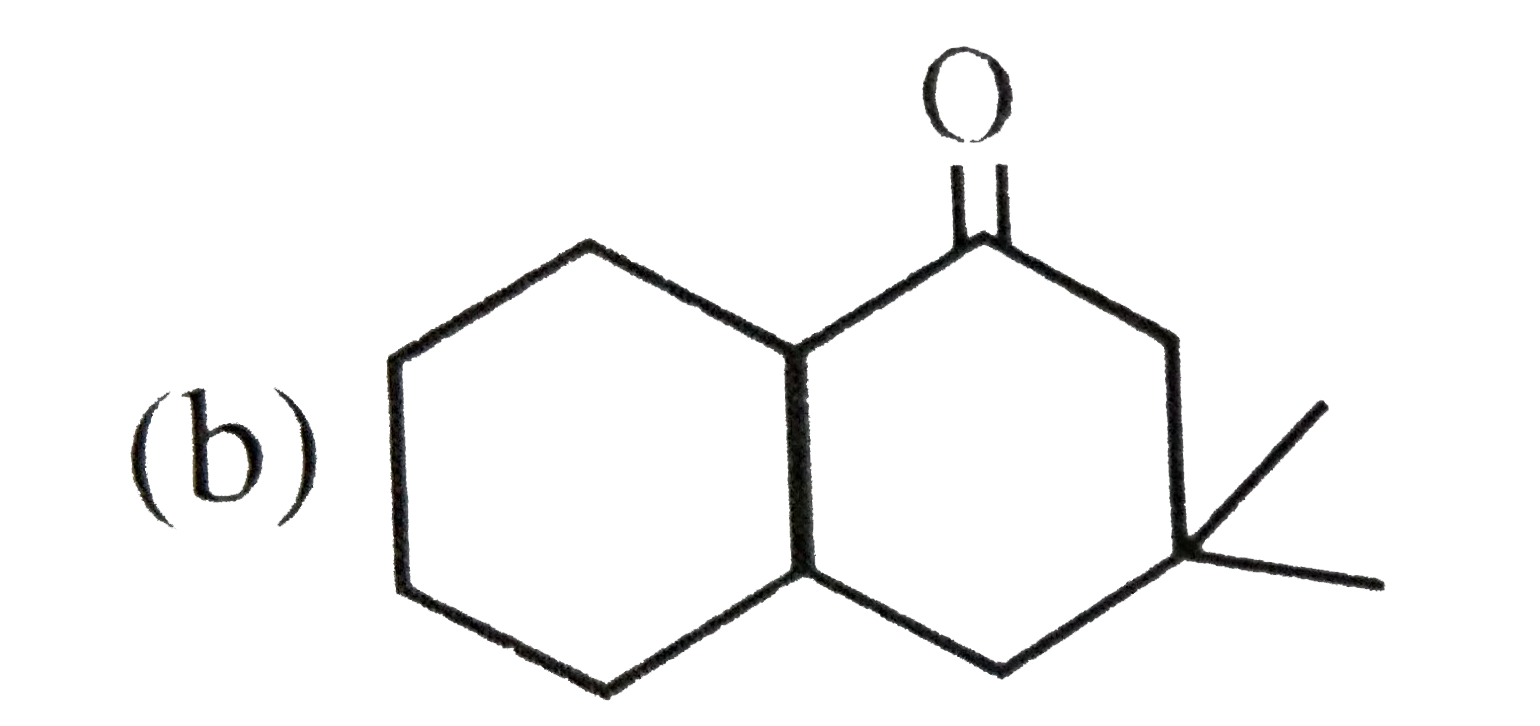Which of the following cannot exhibit hypercojugation -
CH3.CH2
(CH3)2+CH
CH3CH=CH2
(CH3)3C−+C−CH2
The correct Answer is:D
To determine which of the given molecules cannot exhibit hyperconjugation, we need to understand the concept of hyperconjugation and identify the presence of alpha hydrogens in each molecule.
1. Understand Hyperconjugation:
Hyperconjugation is the delocalization of electrons in sigma bonds (typically C-H or C-C bonds) with adjacent empty or partially filled p-orbitals or pi-orbitals. This effect stabilizes the molecule.
2. Identify Alpha Hydrogen:
An alpha hydrogen is a hydrogen atom attached to the alpha carbon, which is the carbon adjacent to a carbon that has a double bond, positive charge, or radical. If an alpha carbon has no hydrogen atoms attached, hyperconjugation cannot occur.
3. Analyze Each Molecule:
- Molecule 1: CH3-CH2• (Radical):
- The alpha carbon (CH2) has three hydrogens.
- Conclusion: Hyperconjugation is possible.
- Molecule 2: (CH3)2C+ (Carbocation):
- The alpha carbon (C) has two hydrogens attached.
- Conclusion: Hyperconjugation is possible.
- Molecule 3: CH3-CH=CH2 (Alkene):
- The alpha carbon (CH) has two hydrogens attached.
- Conclusion: Hyperconjugation is possible.
- Molecule 4: (CH3)3C+ (Tertiary Carbocation):
- The alpha carbon (C) has no hydrogens attached (all are replaced by methyl groups).
- Conclusion: Hyperconjugation is NOT possible.
4. Final Answer:
The molecule that cannot exhibit hyperconjugation is (CH3)3C+ (option D).
Hyperconjugation is the delocalization of electrons in sigma bonds (typically C-H or C-C bonds) with adjacent empty or partially filled p-orbitals or pi-orbitals. This effect stabilizes the molecule.
An alpha hydrogen is a hydrogen atom attached to the alpha carbon, which is the carbon adjacent to a carbon that has a double bond, positive charge, or radical. If an alpha carbon has no hydrogen atoms attached, hyperconjugation cannot occur.
- Molecule 1: CH3-CH2• (Radical):
- The alpha carbon (CH2) has three hydrogens.
- Conclusion: Hyperconjugation is possible.
- Molecule 2: (CH3)2C+ (Carbocation):
- The alpha carbon (C) has two hydrogens attached.
- Conclusion: Hyperconjugation is possible.
- The alpha carbon (CH) has two hydrogens attached.
- Conclusion: Hyperconjugation is possible.
- The alpha carbon (C) has no hydrogens attached (all are replaced by methyl groups).
- Conclusion: Hyperconjugation is NOT possible.
The molecule that cannot exhibit hyperconjugation is (CH3)3C+ (option D).
Topper's Solved these Questions
- GENERAL ORGANIC CHEMISTRY-IBOOK - RESONANCE ENGLISHCHAPTER - GENERAL ORGANIC CHEMISTRY-IEXERCISE - EXERCISE-1 PART-III (MATCH THE COLUMN)
1 Videos
- GENERAL ORGANIC CHEMISTRY-IBOOK - RESONANCE ENGLISHCHAPTER - GENERAL ORGANIC CHEMISTRY-IEXERCISE - EXERCISE-2 PART-I
20 Videos
- GENERAL ORGANIC CHEMISTRY-IBOOK - RESONANCE ENGLISHCHAPTER - GENERAL ORGANIC CHEMISTRY-IEXERCISE - PART-III : PRACTICE TEST-19
1 Videos
- GENERAL ORGANIC CHEMISTRY IIBOOK - RESONANCE ENGLISHCHAPTER - GENERAL ORGANIC CHEMISTRY IIEXERCISE - Part-III: Section-5: Matching List Type
1 Videos
- HYDROGEN AND ITS COMPOUNDSBOOK - RESONANCE ENGLISHCHAPTER - HYDROGEN AND ITS COMPOUNDSEXERCISE - INORGANIC CHEMISTRY(Hydrogen & its compunds Y environment chemistry)
33 Videos
Similar Questions
Which of the following cannot be a base?
View SolutionWhich of the following cannot be hydrolysed?
View SolutionWhich of the following cannot be hydrolysed ?
View SolutionWhich of the following can exhibit tautomerism:
View SolutionWhich of the following cannot be polarised?
View SolutionWhich of the following cannot be acylated ?
View SolutionWhich of the following cannot fix nitrogen?
View SolutionWhich of the following cannot he formed ?
View SolutionWhich of following can exhibit tautomerism?


View SolutionWhich of the following do not exhibit resonance.
View Solution
